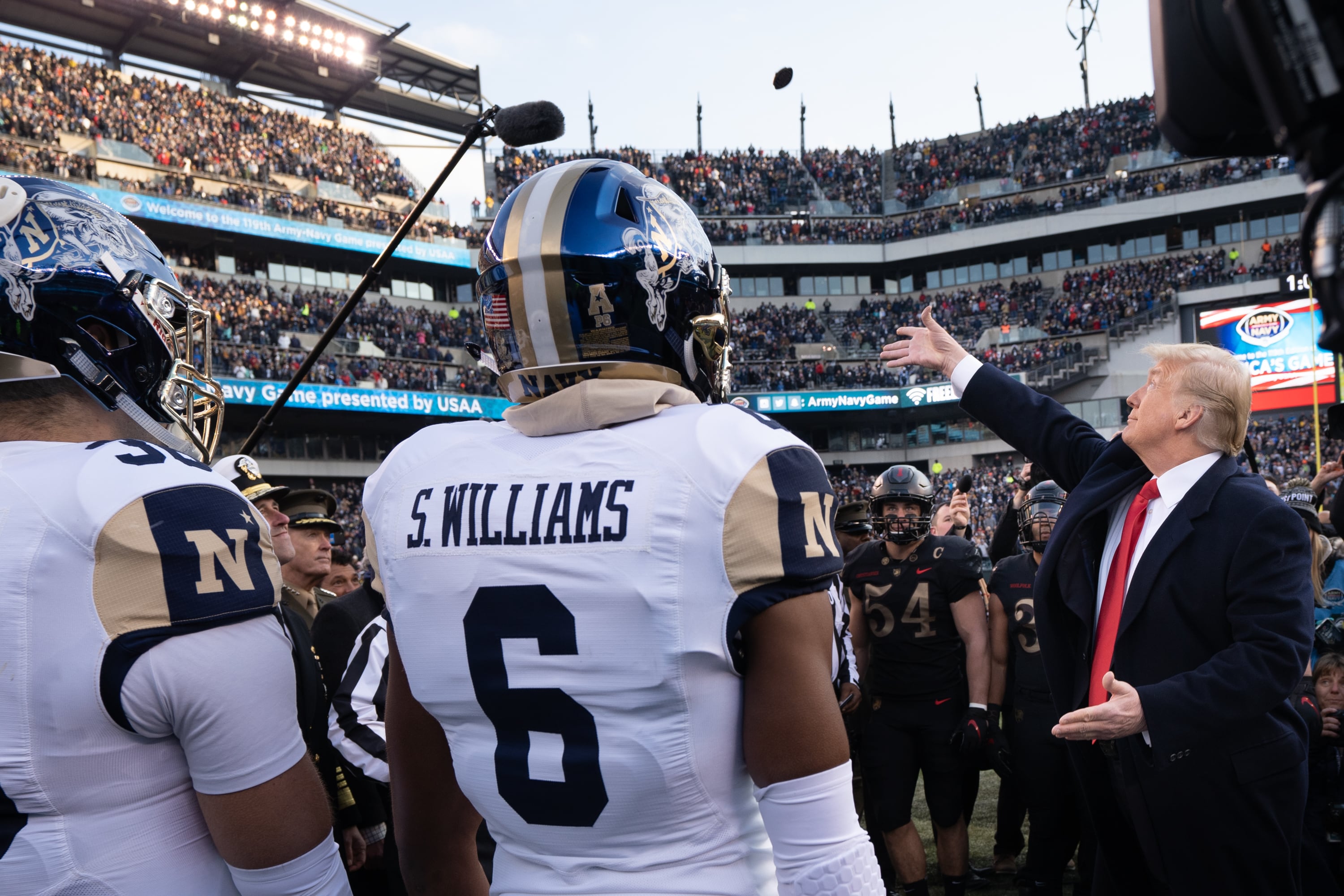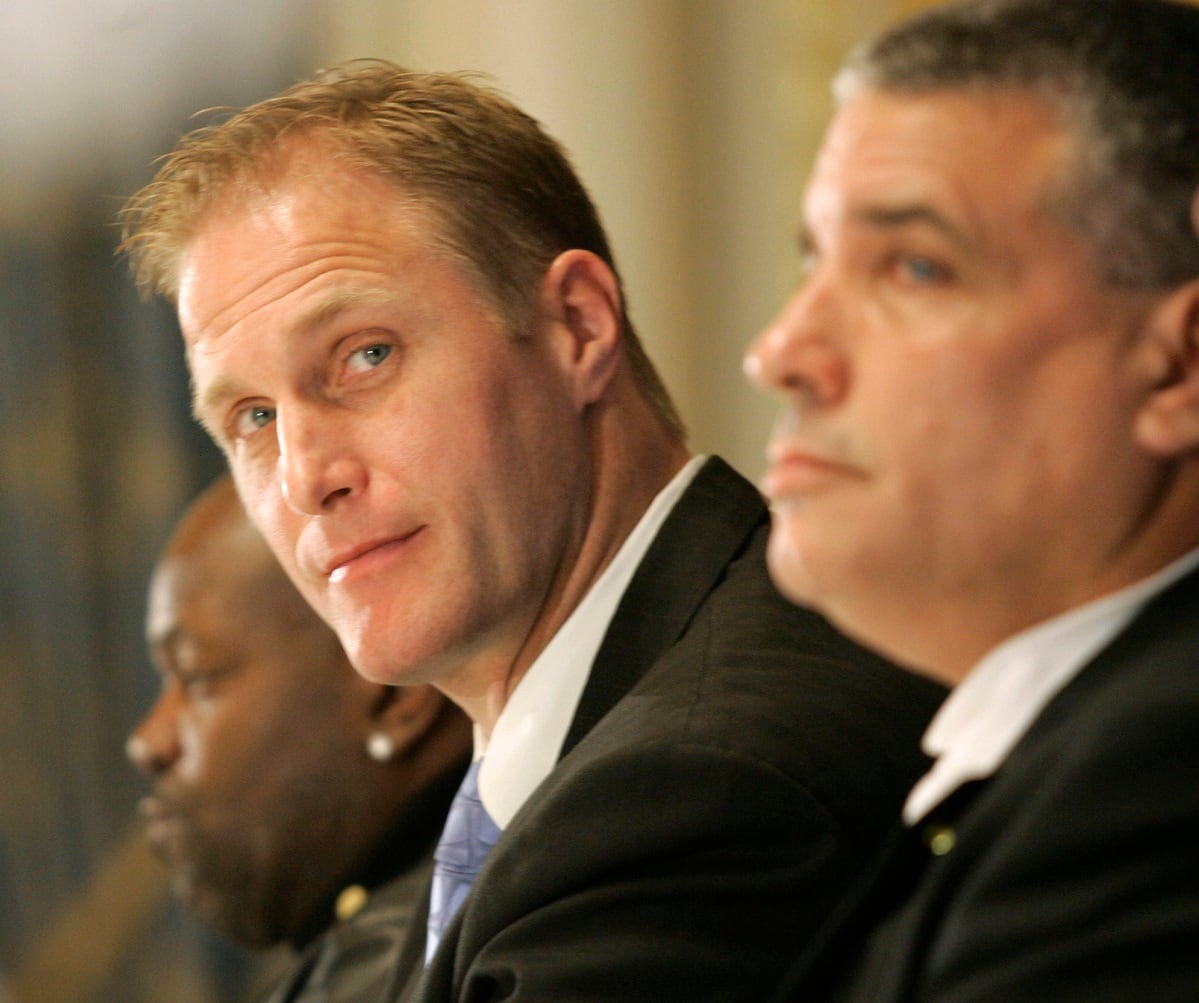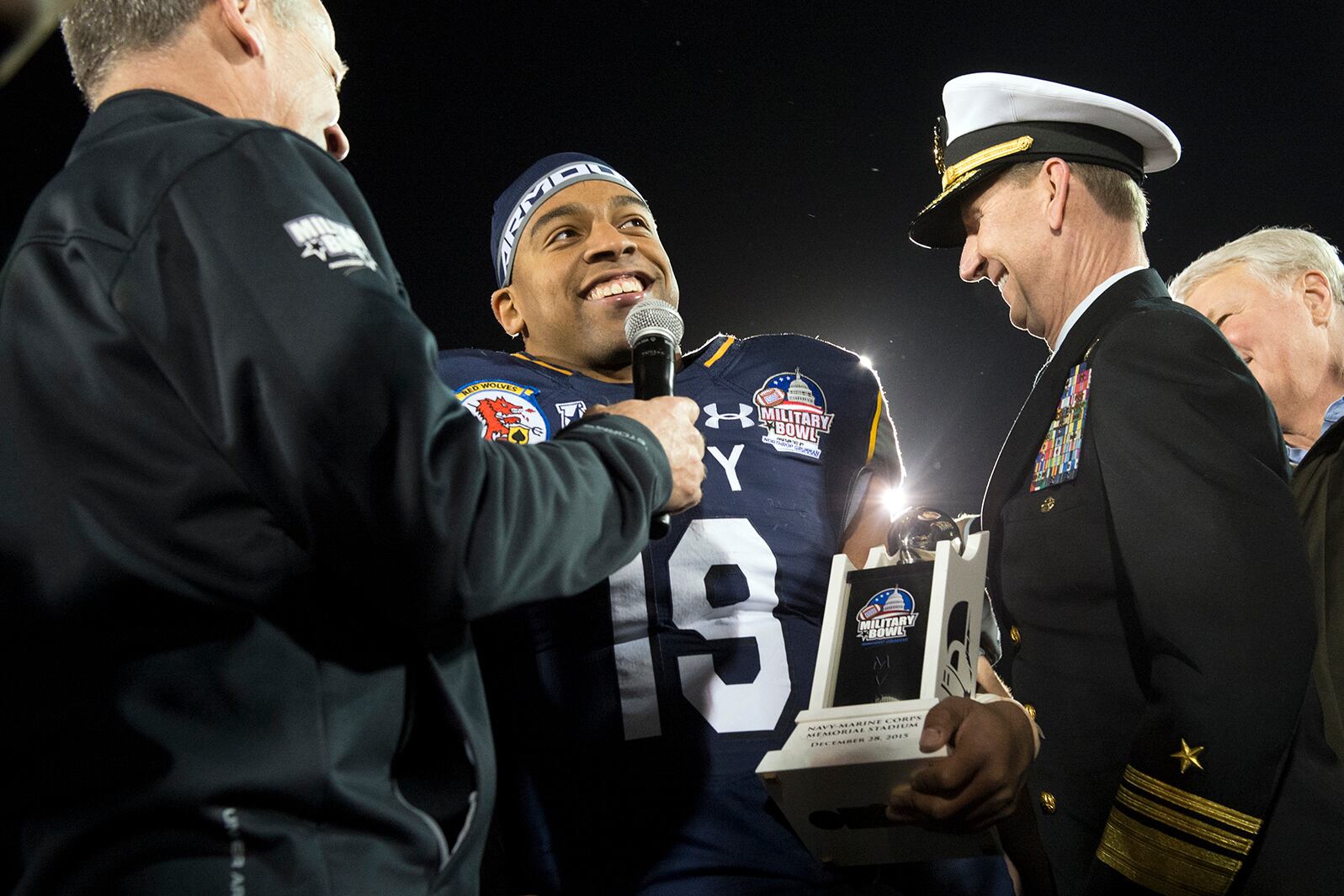WASHINGTON — Defense Secretary Mark Esper has opened the door for athletes at the nation’s military academies to play professional sports after they graduate, and delay their active-duty service.
Esper signed a memo last Friday laying out the new guidelines, which says the athletes must get approval from the defense secretary, and it requires them to eventually fulfill their military obligation or repay the costs of their education.
The memo, obtained by The Associated Press, came at the insistence of President Donald Trump, who directed the Pentagon in June to come up with a way to allow athletes to play professional sports immediately upon graduation. Trump gave the Pentagon four months to develop the new policy.
RELATED

Allowing athletes to delay service has been a hotly debated issue. The Obama administration put a policy in place allowing some athletes to go to the pros and defer their military service.
That policy allowed Navy quarterback Keenan Reynolds to be drafted by the Baltimore Ravens in the sixth round of the 2016 draft after completing a four-year run with the Midshipmen. But the year after he went pro, the Defense Department rescinded the policy.
Then-Defense Secretary Jim Mattis, in an April 2017 memo, said service academies “exist to develop future officers,” and that graduates would serve as “full-fledged military officers carrying out the normal work and career expectations” of someone who received an education at the taxpayers’ expense.
Earlier this year, however, Trump said he was considering allowing athletes to get a waiver so they could play pro sports. He made the announcement during a Rose Garden ceremony in May when he presented the Commander-in-Chief’s Trophy to the football team of the U.S. Military Academy at West Point. The Army Black Knights completed an 11-2 season and earned the trophy for the second consecutive year.
He issued the order in June, saying that athletes graduating from the academies and Reserve Officers’ Training Corps should be able to defer their military service obligations due to the “short window of time” they have to “take advantage of their athletic talents, during which playing professional sports is realistically possible.”
In the new memo, Esper says that military service secretaries can nominate an athlete for a waiver after determining there “is a strong expectation that a Military Service Academy cadet or midshipman’s future professional sports employment will provide the DoD with significant favorable media exposure likely to enhance national level recruiting or public affairs missions.”
If approved by the defense secretary, the athlete must agree to return to the military and serve his or her service commitment, typically five years. While in the pro sports job, the athlete’s waiver would be reviewed every year.
If the athletes can’t pass required medical standards when it is time to rejoin the military, then they are “encouraged” to serve in a civilian post within the department for no less than five years, according to Esper’s memo. If they choose not to do that, they would be subject to repayment of their school expenses.
It wasn’t clear Thursday what impact Esper’s new policy will have on the fate of Noah Song, a pitcher from the U.S. Naval Academy. Song, 22, was a fourth-round draft pick this year of the Boston Red Sox, so he is not covered by the new memo. The right-hander was going to pitch for the minor league team in Lowell during the summer before reporting for duty to train as a flight officer.
Song is seeking a waiver, but there has been no decision yet. The Navy declined to provide any other details.
Several Navy football players have gone on to have success in the NFL, most notably 1963 Heisman Trophy winner Roger Staubach, a quarterback for the Midshipmen from 1962-64. After serving a tour of duty in Vietnam, he joined the Dallas Cowboys in 1969 and guided the team to a pair of Super Bowl victories.
Another Heisman Trophy winner, Glenn Davis of Army in 1946, was a first-round draft pick of the Detroit Lions but had to serve three years in the Army before making his NFL debut with Detroit in 1950.
Chad Hennings, a defensive tackle for the Air Force Academy, won the Outland Trophy as the nation’s best interior lineman in his senior year in 1987. Hennings was selected in the 1988 NFL draft by the Cowboys, but became an A-10 Thunderbolt II pilot to fulfill his service commitment.
Assigned to the 92nd Tactical Fighter Squadron, 81st Tactical Fighter Wing, at RAF Bentwaters in England, Hennings twice forward deployed to Incirlik Air Base, and flew 45 combat sorties over northern Iraq in support of Operation Provide Comfort, providing a safe zone for Kurds.
Hennings, by then a captain, was released from active duty in 1992 as part of a reduction in force. He then played nine seasons with the Cowboys, winning three Super Bowls. He simultaneously served almost 10 more years in the Air Force Reserve Individual Mobilization Augmentee program.

